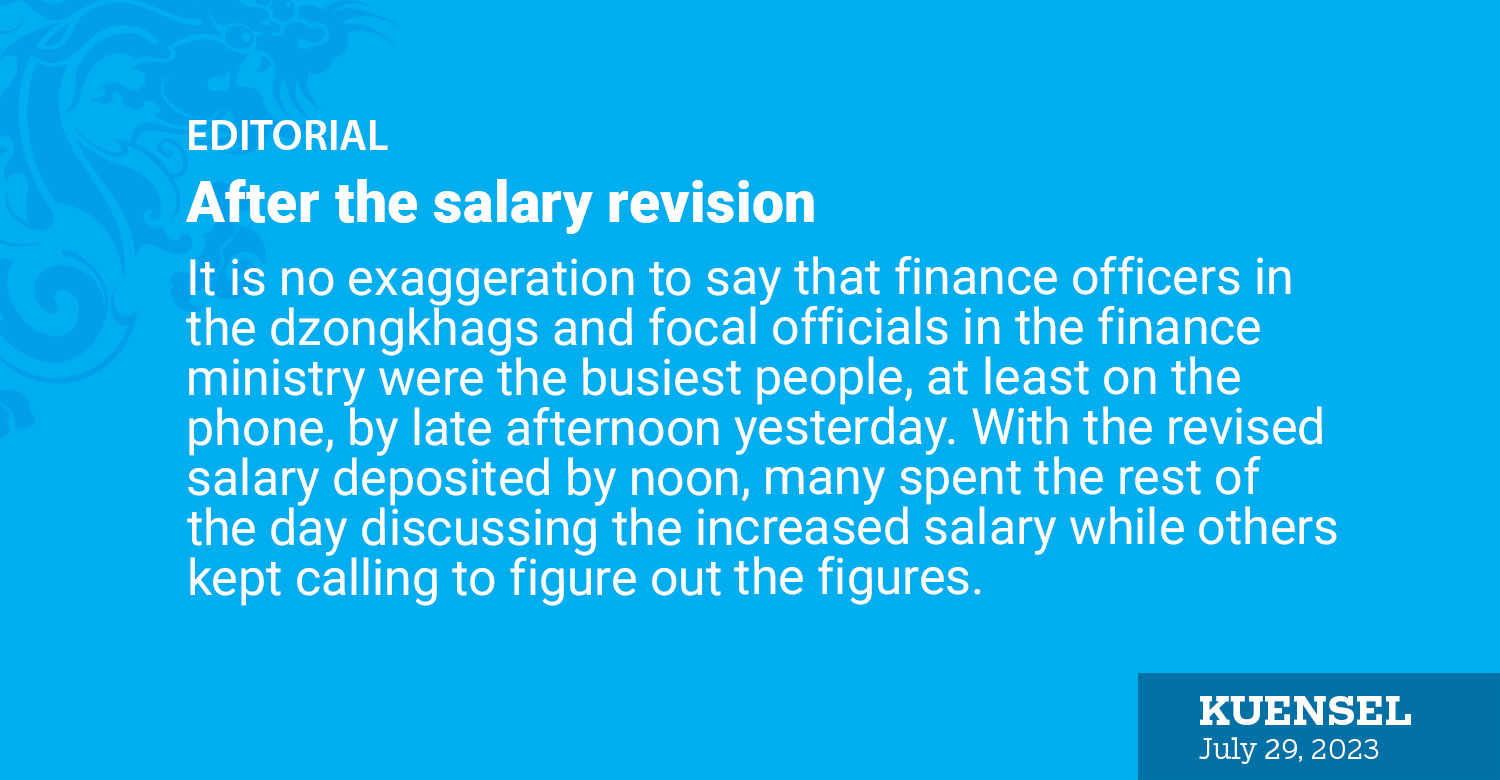It is no exaggeration to say that finance officers in the dzongkhags and focal officials in the finance ministry were the busiest people, at least on the phone, by late afternoon yesterday. With the revised salary deposited by noon, many spent the rest of the day discussing the increased salary while others kept calling to figure out the figures.
The salary revision is the most substantive. From 55 to 74 percent raise, it is the highest raise that the Bhutanese civil service and the armed forces have seen. It would be impractical to expect that the entire salaried population will be happy, but it will ease some of the most urgent shortages.
In Wangdue, a group of civil servants are planning to sponsor a Namgay Tongchey (a grand ritual) by contributing money from the first extra income they receive. A mother of two in Thimphu spent nearly 5,000 on groceries. Another is happy to pay off the last two installment for the laptop she purchased for her sister-in-law.
A constable feels his daughter, who turned one a week ago, is his lucky charm. The revised amount is enough to cover his two loan installments. He can save too. Beyond the individuals, the salary revision could have a larger impact because there is a huge group nearly 40 percent of the population that live on salaries. They drive the consumer market. We will soon see how the market reacts.
The revision was approved to meet the rising cost of living. It was much needed. Cost of living was shooting through the roof, especially in urban Bhutan. Salaried people felt the burden of the high cost of living. Some looked for better opportunities, including emigrating to foreign land. The revision, some say, will restore the pride of being a civil servant.
However, there is a downside of salary revision. The sharpest thorn is those outside the civil service etching out their own revision – increased house rent, price escalation of goods and services. If the intent of the revision is to work, the work starts now.
Landlords were notified to follow the Tenancy Act when revising house rents. However, this alone will not solve the problem. Take, for instance, the cost of transportation. The transport sector continues to be the main driver of inflation. At one point it reached 15.46 percent last year.
If transportation is driving inflation, authorities should look into it. The cost of transport increases when fuel prices rise. It does not fall when fuel prices drop. We have seen fuel prices cross the Nu 100 mark, followed by an increase in cost of transport. However, the cost is not falling with the fall in fuel prices. We have no authorities to control the cost of transport apart from passenger buses and taxis. The consumer protection office has more work to do.
Soon the DHI companies will revise their salary followed by rich state-owned enterprises. If the prices of goods and services are not controlled through policy intervention, it will be the farmers, villagers, the unemployed and those in the private sector that will bear the brunt of a generous pay raise.
While a pay raise is needed, controlling price or inflation would be the biggest benefit for the thousands that do not receive monthly salaries.


